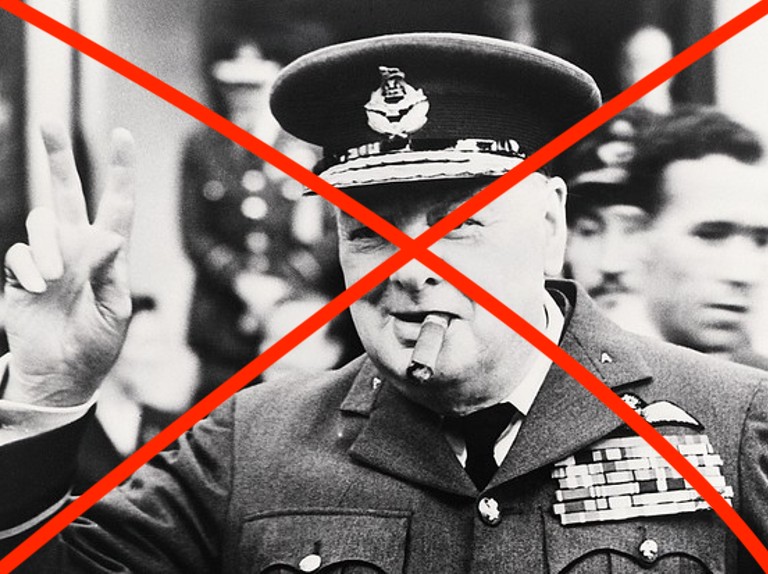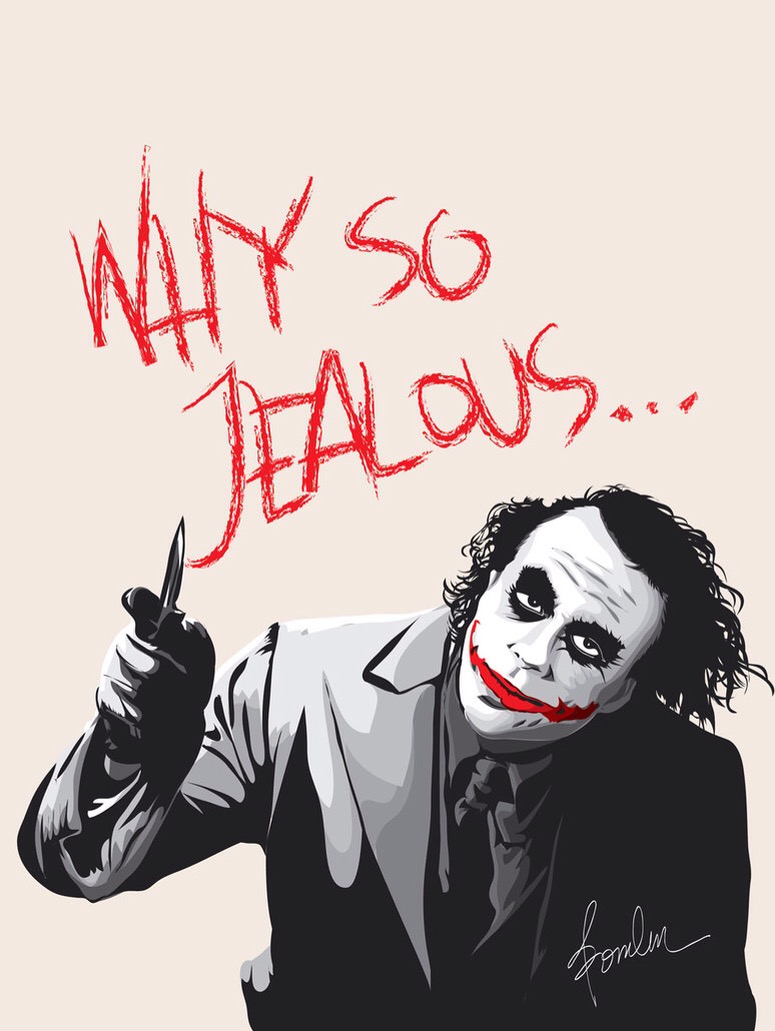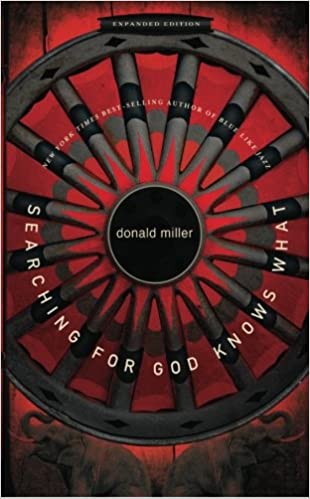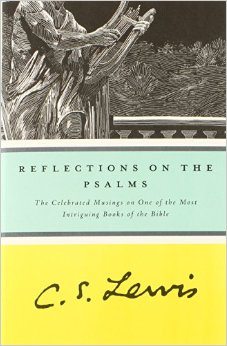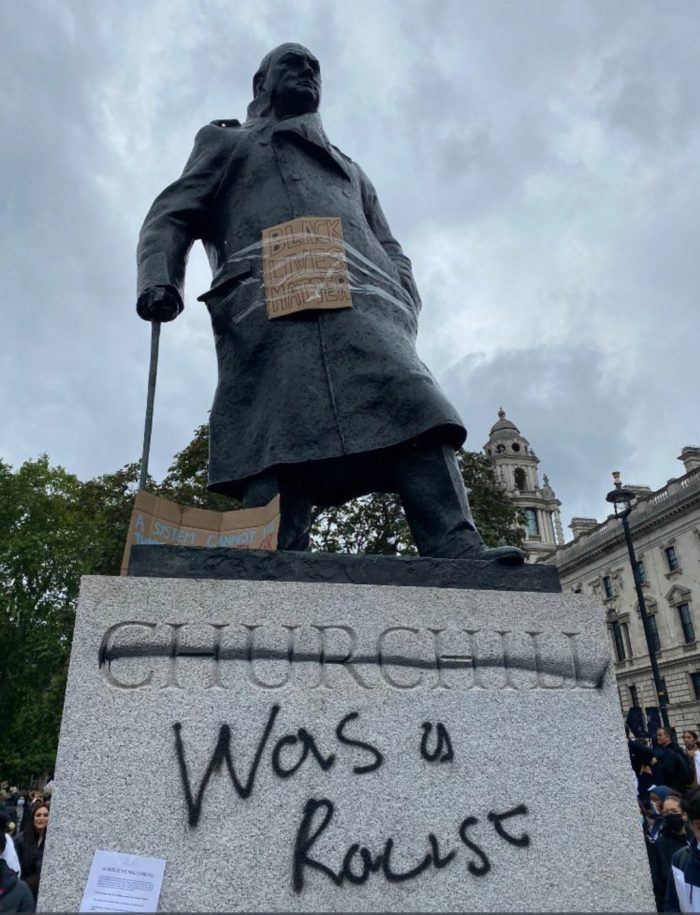
Evidently, Winston Churchill is a worthless S.O.B. now. As the protestors filled the square this weekend, someone took the liberty to tape a Black Lives Matter placard around the massive girth of the Old British Bulldog while another crossed off Churchill’s name at the base of his statue. Black paint now tells the truth about this man. He is not worthy of a statue or any emulation. He is just another one of those rotten white racists. Should “racist” be the term that defines the legacy of this man’s life? The key point for historians to bring out as we carry his memory into the future?
I’m no Churchill scholar, but ironically just this weekend, I happened to complete my first full-length study of this remarkable man’s life. How Winston Churchill Changed the World by celebrated teacher and Pulitzer Prize finalist Michael Shelden delivers a beneficial bit of historical education that provides a needed counterbalance to the conclusions recently offered by the angry mob.
- Remember him as the lone voice willing to stand against tyranny. — In 1940, Europe was vanquished. The Rhineland, Austria, Czechoslovakia, and Poland had been annexed. Norway, France, Holland and Belgium had capitulated to the 3rd Reich. Mussolini had thrown in his lot with the Fuehrer. Russia was out of the War because of its non-aggression pact with Hitler, and the U.S.A. was unwilling to make another European war their own. Britain was utterly alone. Political pressure to sue for peace with the Nazi’s was immense both inside and outside Britain. Churchill’s defiance in the face of such incredible odds was one of his finest moments. His courage to stand up to a bully when everyone else was standing down, is a testimony to his resolve and his courage. Churchill had read Mein Kampf; he had listened to Hitler’s speeches; he knew of the racism, oppression, and murder of the Reich. While everyone else seemed content to ignore, appease, or even support Hitler, only Churchill stood tall against him. He loathed tyranny, and he was willing to fight to the death to see it brought down.
- Remember him as the one who valued human freedom more than life itself. For much of his political career, Churchill kept a suicide note in his pocket, it was not his own, but that of a convicted murderer, he had spared the death penalty. Churchill had commuted the sentence to life imprisonment, but the convict did not well receive his gesture, the man took his own life in his prison cell. On the note left behind, the deceased wanted Churchill to know that death was preferable to life without freedom. Churchill never forgot that lesson. Churchill believed he was on this earth to fight against the enemies of freedom. Yes, he loved king and country, but he loved human freedom first of all. In that dark time of human history, with Hitler, Stalin, Mussolini, and Japanese Imperialism angling to destroy human freedom, we needed a single-focused freedom fighter with bull-dog determination. Churchill was that man. Anyone who enjoys freedom today owes him a debt of gratitude. Shelden is convinced that no one person did more to preserve the freedoms the West enjoys today.
Despite the debates that still cast parts of his career into doubt, Churchill’s most enduring legacy is not tied even to his crucial part in crushing Nazism. It is anchored instead in something deeply personal and timeless: his individual stance as a champion of freedom when the world was at a tipping point between darkness and light.
- Remember him as an ambitious man who believed in destiny, glory, and adventure. In his youth, as a soldier, after fighting in India and Africa, he said, “Nothing is so exhilarating as to be shot at without result.” Consistently, throughout his life, he was convinced of his own greatness. To one admirer, he whispered these words. “We are all worms, but I believe I am a glow-worm.” Churchill could never sit still; he was always active. “I like things to happen, and if they don’t happen, I like to make them happen.” This constant forward momentum, at times, got him into real trouble. He never could shake his reputation as impulsive and careless, although the status is unwarranted, especially during W.W. 2. Of all the significant combatants, England suffered by far the fewest casualties under Churchill’s leadership. Winston continuously dodged death his entire life. He was always out in front leading, even as an older man, he thrived on being in harm’s way. He was always taking significant risks to accomplish impossible things. One close shave with death came in a most unlikely fashion. A suffragette almost killed the great statesman. She hit him with a bullwhip and tried to push him in front of a train! “Take that you brute,” she said. Churchill was only rescued from a grizzly death on the tracks by a fast-acting policeman nearby. Ironically, Churchill was for a woman’s right to vote. The angry woman had picked the wrong target.
- Remember him as one of the greatest orators and writers this world has known. When he gave the speech that mobilized the nation to fight to the death against Hitler, one parliamentarian remarked. “He’s just mobilized the English language and sent it Into battle!” In 1943 at great peril to himself, he flew to Russia. Stalin was in full bully mode, and with all the bluster and threatenings he could muster, he attempted to force Churchill to open a Western front before they were ready. Churchill took the badgering, but finally, after Stalin repeatedly called the British cowards, Churchill exploded into a barrage of oratory, that left the translator spellbound. Stalin could see the passion as the flurry of words effortlessly flowed in an unceasing stream out of Churchill’s mouth. Stalin realized that in a war of words, he was no match. It was observed says one contemporary of Churchill “Churchill was the peacock in a room full of chickens,” another said of him. “He was a cataract of boiling eloquence,” another said, “He dazzled some irritated many and earned the envy and admiration of everyone else.” One reason he was such a compelling speaker and writer was his vast consumption of books; he regularly read for his entire life. Going into any debate, Churchill would always know more than his opponents. Of books, Churchill quipped. “If books cannot be your friends let them at least be your acquaintances.”
- Remember him as one who though frequently knocked down, refused to stay down. In W.W. 1 the Gallipoli campaign was a disaster. Churchill became the scapegoat. Such was his life. Churchill was always being criticized or attacked, but he never could be completely knocked out. He said, “War and politics are the same. The only difference is in politics; you can get killed more than one time.” Churchill’s political death count was remarkable; his life fits the popular children’s song. The cat came back; they thought he was a goner, but the cat came back; he just couldn’t stay away.
- Remember him as a forward-thinking innovator. Just before W.W. 1, when leaders wanted to defund portions of the royal navy, only Churchill saw the need to keep current with Germany’s navy. The British naval blockade turned out to be an essential reason for success in W.W. 1. When General Haig planned to continue sending British troops marching to their death in front of German machine guns, it was Churchill who insisted on the development of the tank. Just before WW2, when no one could see the value of a strong airforce, it was Churchill who doggedly pursued the advancement of the R.A.F. The government actually defunded the development of the Spitfire. The fighter plane which would eventually win the Battle of Britain. At Churchill’s urging, a private citizen stepped forward and continued to fund the project. It’s a good thing too, or we might all be speaking German!
Churchill’s statue should remain. Anyone who enjoys freedom today owes this man a great debt of gratitude. That includes the people who exercised their liberty to deface him on the weekend. It seems to me, after finishing this course, that for those who love freedom, Churchill is no enemy.
